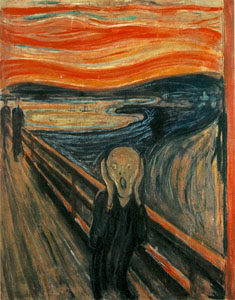
There are four types of attention: sustained attention, alternating attention, divided attention and selective attention.
Sustained attention is keeping your focus for a long time. This skill is used when listening to a lecture. When I’m rested I can stay focused for an hour conversation with someone, but I become tired and can’t retain all that was said.
Alternating attention is quickly changing focus and concentration from one activity to another. This happens when someone calls your name or when the phone rings. Since I’m slow at processing information, I’m slow at changing my attention. If I’m doing something when the phone rings, I usually let it ring and call back if they’ve left a message.
Divided attention is the ability to do two activities at once, often called multi-tasking. Talking on the phone while driving is an example. People overrate their ability to have divided attention since believe they’re accomplishing more. I’m not capable of dividing my attention. I have difficulty thinking of one activity before I move on to the next.
Selective attention is choosing and concentrating on one stimuli or object among several while not being distracted by other stimuli/objects. Staying focused on writing while hearing the refrigerator humming is an example. Selective attention causes my auditory overload problem that didn’t exist before my brain injury, It interrupts my concentration and thinking. (This website will clarify attention skills following a TBI). After the interruption I need to review what I was doing and start again with a clear mind. It becomes frustrating, annoying and tiring. It takes time to find the answer.
In Summary:
Selective attention filters the stimuli so we aren’t overwhelmed and allows us to concentrate on a selected object.
The stimuli filter decreases the volume of the unattended stimuli so they don’t distract from concentration of the selected stimuli. (Read this website about selective attention studies.)
We have a limited capacity to process sensory information and our capacity becomes more limited after a brain injury.


